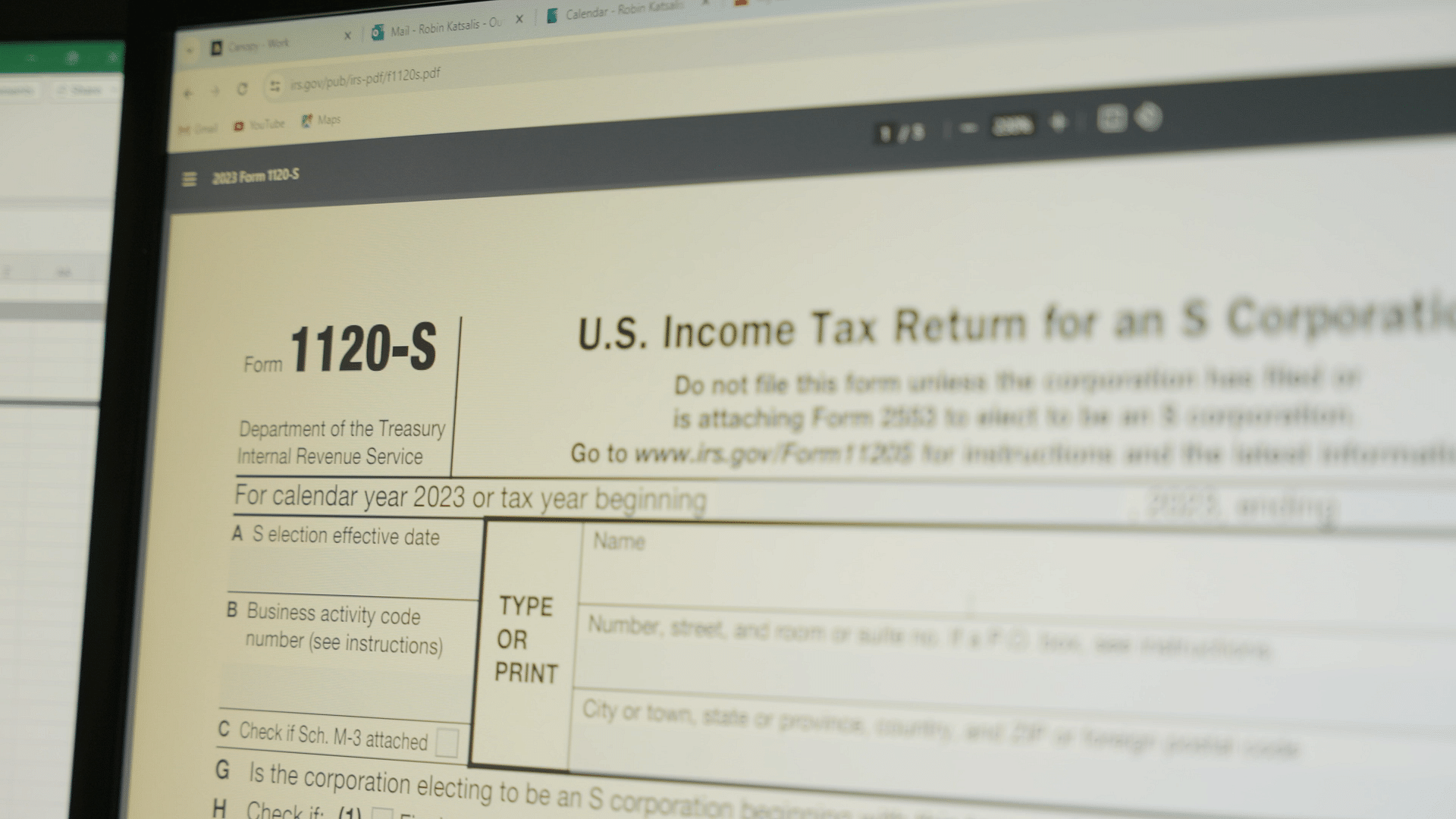
New to Small Business?
Jul 6th, 2017
Things you should know for your first tax filing.
If you started your new business in 2017, then March or April of 2018 is a first big milestone for your company. Those are the months when your first reported tax documentation is due to the IRS. Depending on your business type, you may be responsible for not only the business' filings, but also other shareholders or partners involved in the enterprise. If you have employees, then you'll have another layer of documentation such as W-2 and 1099s. What are all of these requirements and how do you know if your business is ready to prepare and distribute them correctly? Let's review some of the basics starting with your company's business entity.
Business Type Matters
If you haven't already met with a small business tax advisor to discuss the business entity type, you should. While you can't change your entity type from the preceding year, you can impact next year's taxes by making a change, if necessary. There are many differences between sole proprietorship, partnerships, limited liability corporation (LLC), S corporation and C corporations.
Sole proprietors can deduct "ordinary and necessary" business expenses like any other business entity, however, more in-depth tax deductions and advantages aren't always available. It is essential that sole proprietors keep separate and distinct bookkeeping from personal and household expenses including separate checking accounts and credit cards.
Partnerships are formed by two or more individuals. For tax purposes, income and losses from the partnership are reported on Form 1065. Income taxes are paid on the partnership directly, rather the partners are taxed on their share of the partnership income, regardless of whether they take money out or reinvest it back into the business. Additionally, partnerships have personal liability for any financial debts the business incurs.
A limited liability corporation (LLC) has varying rules from state to state. The IRS has the option to treat the LLC as either a corporation, partnership or in a single-member LLC, a sole proprietor. The benefit of an LLC is that if offers the protection of a corporation from personal entanglement in debts accrued by the business (unless the loans or debts are personally guaranteed).
Corporations are the most complicated structurally and are not the best option for new business start-ups. Over time, as the business gains revenue and growth, shifting to a corporate structure may make sense. Remember that both S and C corporations require shareholders, a board of directors, and very involved set of taxation rules. The transition to corporate status is not something that should be done lightly or without outside advice and counsel. S corporations offer small business owners the advantage of paying taxes at the shareholder level, rather than being subject to higher corporate rates. C corporations can deduct a wider range of expenses but must also deal with the double taxation issues.
Business Licenses
Certain industries are required to obtain a business license on a federal level. Business types included in the requirement are agriculture, alcohol, aviation, firearms, ammunition and explosives, fish and wildlife, transportation, mining and drilling, nuclear energy, and broadcasting. Additionally, there are business licenses required for certain professionals. This is to protect the public and ensure that the professionals providing the products or services have the correct educational degrees and qualifications.
Tax / Employer Identification Number (TIN/EIN)
Often the same none-digit tax identification number, these numbers can be the same or different. Sole proprietors often use their own Social Security Number as their TIN for tax purposes. Other businesses, such as C-Corps, S-Corps, partnerships, and LLCS are required to obtain an EIN. Any business that pays wages, files pension or excise tax returns or simply wants to avoid using their personal SSN can sign up for an EIN by completing Form SS-4 or apply online via IRS.gov.
Estimated Tax Payments
Start-up business owners are exempt from making quarterly estimated tax payments in the first year of the business' operation; however, they are responsible for submitting them for subsequent years. If you are filing quarterly payments for the first time, you'll want to review last year's income, tax credits, and deductions to calculate your expected tax burden. If you anticipate owing more than $1,000 for the tax year, you must begin paying quarterly tax payments. If you fail to submit at least 90% of the taxes owed, you may be subject to penalties.
Self-employment tax
Comprised of Social Security and Medicare, self-employment tax is paid by individuals whose income is not subject to employer withholding. Self-employed individuals are responsible for both the individual portion of the self-employment tax and the half traditionally paid by an employer (also you). To reduce this financial impact on the business owner, the IRS allows the deduction of the employer-equivalent portion of the self-employment tax. For example, if you owe $10,000 in self-employment tax, you can deduct half, or $5,000, which reduces your overall taxable net income.
W-2 and 1099s
If you have employees, even just one, then you are responsible for providing each employee Form W-2 which outlines what the employee received in wages and any contributions to health care, federal and state taxes and other payments. As an employer, you are also responsible for collecting the federal and state tax withholdings and making quarterly payments to the federal and state agencies on behalf of the employee. If you don't have employees but do utilize the services of an independent contractor, then payments for services rendered can be provided on a Form 1099-MISC. The red Copy A of the 1099-MISC must be filed with the IRS. Bear in mind that you can only send an original copy of this form, not downloads from the IRS website. The black and white Copy B and C versions can be downloaded and completed for distribution to your independent contractors.
If you found this article useful, please do not keep this a secret. Share it with a friend.
Copyright 2017 by Steven A Feinberg (@CPAsteve) of Appletree Business Services LLC, a PASBA member accountant, located in Londonderry, New Hampshire.


Let’s Help Eliminate Your Stress
If you choose Appletree Business Services for your bookkeeping, payroll or tax needs, you’ll find that good things begin to happen in your business. Your common financial challenges will become simple with a clear map to create your ideal situation. More than that, we’ll identify your “typical” stresses and help make them go away.